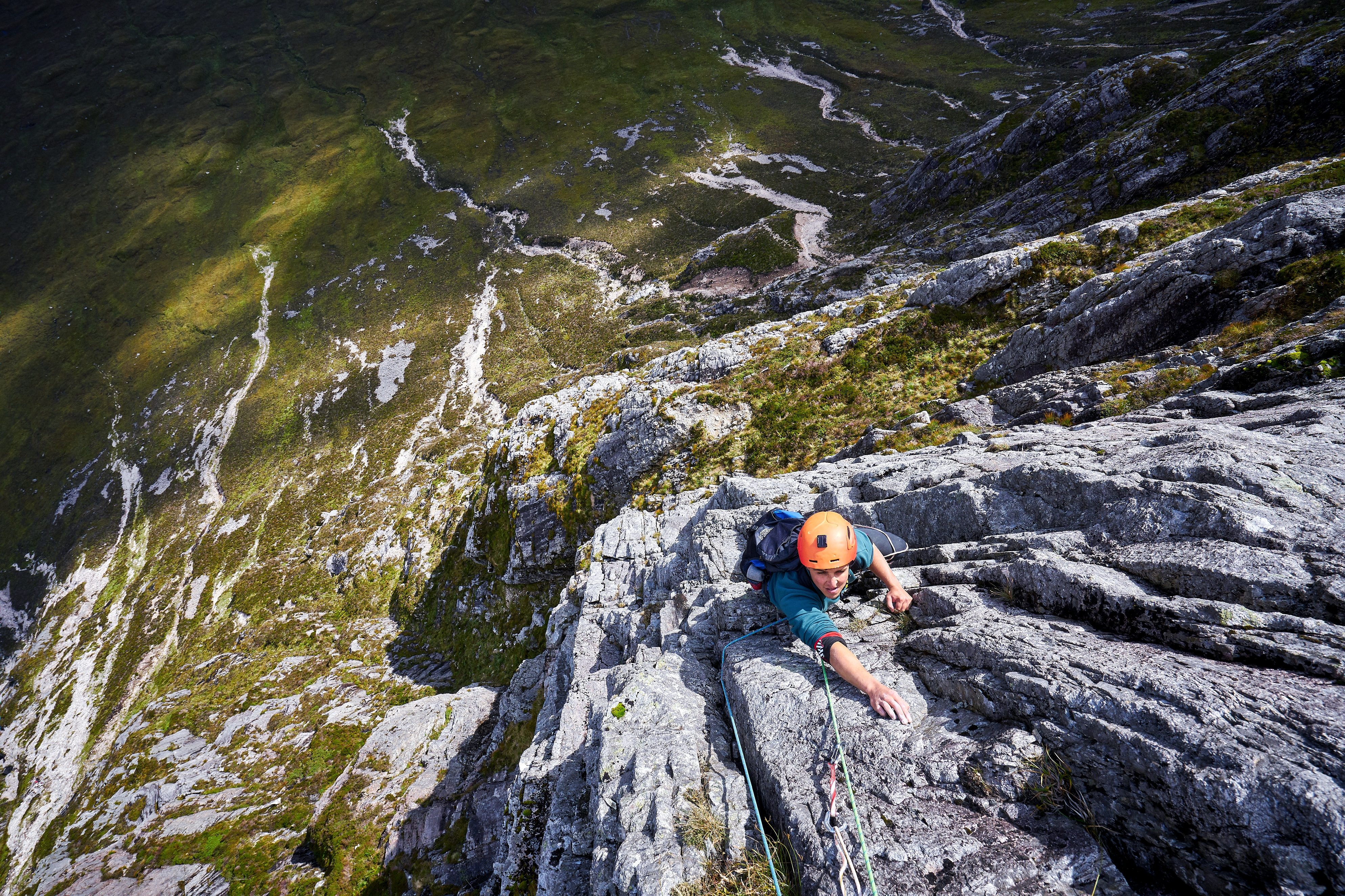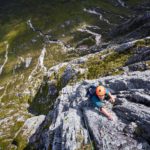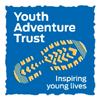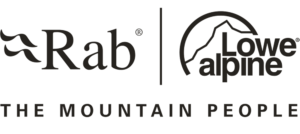Overview
Our courses are suitable for all levels and are tailored specifically to you, offering you complete autonomy and flexibility during your time spent with us. Prior to your course, we will liaise with you to understand what level your scrambling is currently at and, what you hope to achieve in the days you have booked.
We offer scrambling courses based in beautiful Snowdonia, North Wales. Scrambling is best undertaken from April through to October. You can choose any dates that suit you and we’ll find the very best instructor to match your objectives. Some examples of our most popular courses are below.
Introduction to scrambling
The classic grade one scrambles, such as Crib Goch, are a milestone for any outdoor person. Our introduction days are typically upto a maximum ratio of 1:4 and we don’t aim to use a rope, instead we focus on good, efficient movement and route selection.
Stepping it up scrambler
For most people grade two ground will require a rope. On this course you’ll spend time getting use to where the boundaries lie between challenging yourself and staying safe.
Extreme scrambler
Some of the toughest scrambles such as Cniefion Arete are pushing into the realms of rock climbing. Techniques at this top end are excellent preparation for alpine terrain found on peaks such as the Matterhorn.
Independent scrambler
If you have aspirations to lead yourself on your own adventures, we can help you upskill. We’ll aim to teach you the balance between maximum safety and highly efficient activity days.
Trip Suitability
Our scrambling courses are suitable for everyone.
We have a broad variety of friendly, top level instructors who can deliver all aspects of your mountaineering course.
All the scrambling is based in North Wales where there is a huge variety of excellent venues. There is certainly something for everyone, whatever the level or grade you’re at.
Scrambling is a fairly physical activity; you should expect to walk uphill for several hours whilst carrying a rucksack. You will be using your hands once we get onto the rock.
Itinerary
Our scrambling itineraries will vary with each course. The locations that you visit will be determined by your aims and the weather & conditions. In North Wales there are a huge variety of options to choose from including routes lower down in the valleys as well as scrambles to the summit of the highest peaks. A flexible approach is essential as this will give us the best chance of finding superb dry rock.
This is an example of a 2 day scrambling itinerary:
Day 1
- Meet your instructor at 8:30am either at a pre-allocated café or your accommodation
- Discuss the aims and objectives of your days together
- Check your personal kit
- Go scrambling, have an amazing day and learn lots
- Head to a café for 4:30pm/5pm for tea, cake and a chat about the day
- Discuss tomorrows aims
Day 2
- Meet your instructor at 9am – either at pre allocated cafe or your accommodation
- Go scrambling, further develop on yesterday’s learning and skills, have a super day
- Head to a café for 4:30pm/5pm for tea, cake and to re-live your two days
- Depart and head home
Scrambling venues that we often use in North Wales include the Llanberis Pass, Ogwen Valley and Snowdon.
Map

Included
When you book with Mountain Expeditions, we want you to know exactly how much the course is going to cost you, with absolutely no hidden extras or last-minute costs. Our mountaineering courses are all charged on a day rate basis and we leave you to arrange your travel and stay.
Your instructor will be in touch with you directly before the course and will arrange to meet you either, on the evening before if convenient, or on the morning of day 1.
- UK Instructor – highly qualified & very experienced
- All required technical group equipment – ropes etc.
- All mountain safety and emergency equipment
- Transfers to and from the venues
Please also refer to the Not included section.
Not Included
The following are NOT included in our price:
- Transport to and from North Wales
- Accommodation*
- Personal equipment: helmet, harness, shoes, belay plate etc. We have these items available for hire if you don’t already have them, or we can help you choose the right ones at local climbing shops.
- All meals including packed lunches
- Trip insurance
* We recommend basing yourself in or close to Llanberis. There are plenty of B&Bs to choose from and the village offers good climbing shops, small supermarkets, pubs and restaurants.
If you require any advice or help with any of the above, simply Contact Us.
Difficulty Level
All of our UK Courses & Worldwide Expeditions come with a suggested difficulty level to help you choose the correct one. For a full explanation of the Scottish Winter, Alpine and UK Rock Climbing grading systems, this blog explains them all – Grades Explained
Grading for UK Courses
With all our UK courses please refer to the Trip Suitability section for more specific details on course expectation and technical and physical levels required.
C1 – Intro Course: open to any level and ability
C2 – Intermediate Courses: previous experience of scrambling/rock climbing or winter mountaineering
C3 – Advanced Courses: previous technical summer or winter climbing experience
Grading for Worldwide Expeditions
With all our Worldwide Expeditions you should refer to the Trip Suitability section for more specific details on the expedition expectation and technical and physical levels required. If in any doubt please don’t hesitate to contact us.
Physical
A. Good basic fitness, as for UK hill walking and mountaineering. Average rucksack weight: 6-8 kg
B. Good cardio-vascular fitness which for most people requires some training, by running, hiking and perhaps some gym work. Average rucksack weight: 8-12 kg.
C. High level of fitness coupled with physical toughness and the ability to carry a heavy rucksack for long periods. Average rucksack weight: 12-18 kg.
D. As for C, but tougher. Climbs of this grade are exceptionally strenuous and some weight loss is inevitable. Train hard and arrive fit. Welcome to ask for advice if training specifically.
E. Hard physical effort at extreme altitude which requires thorough preparation based on your experience of previous trips. Comments for ‘D’ also apply. May cause long-term fatigue after the trip.
Technical
1. Low angle snow or straightforward scrambling on rocks. Ropes are not usually required. Previous climbing experience is not essential.
2. Ropes are used principally for glacier travel and low angle snow or ice slopes. Ice axe and crampon experience necessary.
3. Short, steep sections of snow or ice up to about 50 degrees. Previous snow and ice climbing experience of Scottish III/Alpine PD is essential.
4. Long, steep snow and ice slopes with short steps of very steep ice or low grade rock climbing. Good all-round climbing ability required to Scottish III/Alpine AD.
5. Very steep ice (Scottish III/IV or harder) or rock (Hard Severe or harder). Suitable for competent mountaineers who have climbed consistently at these standards.
In-country Safety









